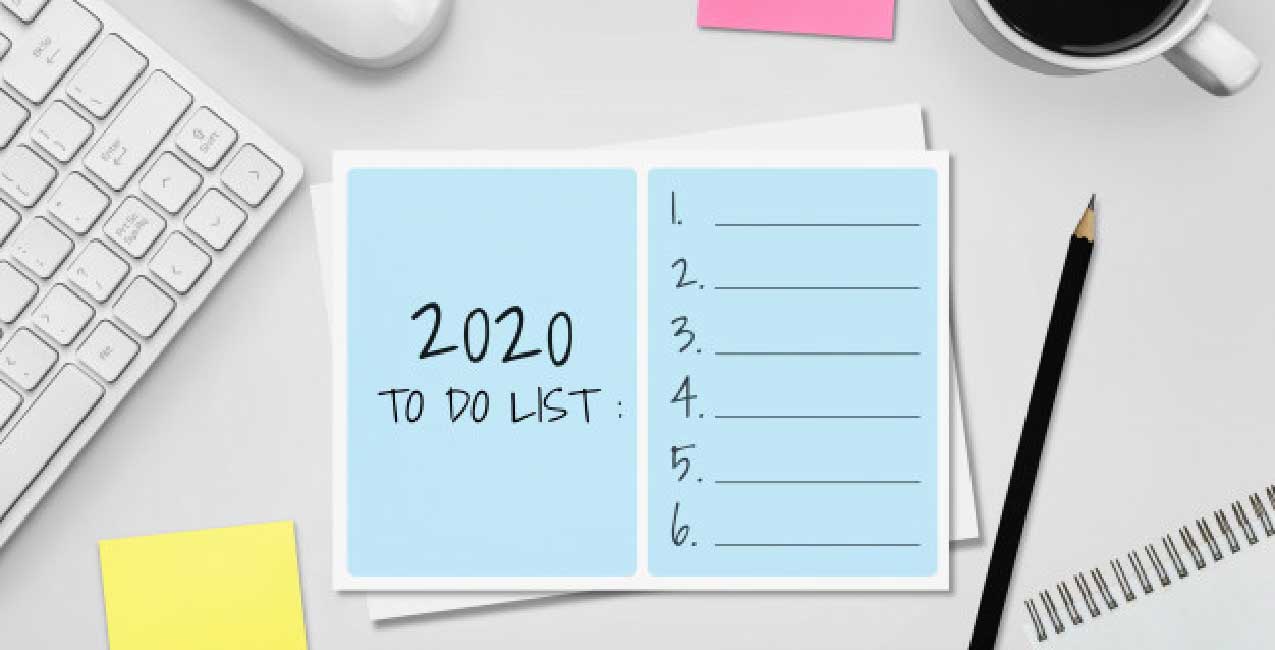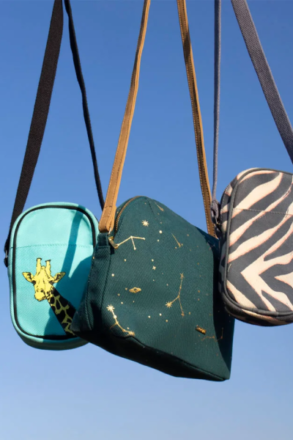- Empty cart.
- Continue Shopping
New Year’s resolution 2020- Does yours help save the planet from plastic?

How to make up your mind?
When I say a lot of people fail to keep new year resolutions, count yourself and me, and a whopping 156 million people across the world!
Resolutions like losing weight, giving up on carbs, waking up early, doing more with your time, quitting smoking, and picking up a new hobby are given up even before you finish saying ‘Floccinaucinihilipilification’ (defined as the action or habit of estimating something as worthless), well, ironically!
We are so busy making resolutions that only concern ourselves, that we tend to overlook issues that affect the world at large.
In your long list of resolutions, add quitting plastic. It is a lot easier to keep up with this resolution, almost as easy as saying ‘confetti’.
Why?
A lot of people laugh it off saying plastic is so deeply ingrained in our lives that it is difficult to quit plastic all at once. We are not trying to go cold turkey or urging people to do so because plastic is indeed ubiquitous and it is difficult to remove plastic from our daily lives.
Coming back to the question of why quit plastic. Plastic choking marine animals is a tangible issue. In a recent finding, plastic has been found in the Mariana Trench, the deepest natural point in the world. Scientists claim that by 2050 there will be more plastic than fish in the ocean.
Do we want this to happen? As long as our moral compass points true north, we will assume the answer as a ‘No’. We definitely do not want Earth to turn to a plastic planet. It is our home and we must keep it clean.
Why?
Because it affects you personally.
Well, first of all, it is in trend. It has become so rampant and viral an issue, that going vegan and quitting plastic is the new cool. It has become socially hip worldwide and become the new topic of discussion in clubs, family gatherings and where not! This has never happened in history. The issue of plastic getting attention on such a humongous scale is absolutely unprecedented.
There is 80 on 100 possibilities of you coming off as someone who is aware and conscious about the planet in a room full of environmentally ignorant people just by reducing the use of plastic. The fact that you care about the environment is more than being cool. It is about caring and being mindful of how our actions are affecting our planet.
Microplastics have been found in the guts of fish. Well, if you are a pescatarian, you know it affects you personally.
10 ways you can quit single-use plastics and do good for the planet.
Perhaps the most difficult part is not making up your mind, but actually following and keeping up with your resolution. The two most common reasons are a lack of motivation and hacks. Yes, you read it right. Everything we do, we tend to find an easy way out. Even as fully functioning adults, we are always Googling hacks or easy ways to do something.
Remember watching will smith portraying Chris Gardner in the ‘The Pursuit of Happiness’. The movie was so inspirational and heart wrenching that I immediately jumped off my couch, well of course after wiping off my tears and made a list of things I wanted to achieve. Two days later, the piece of paper was lying half torn between some books and other knick-knacks on my study table. We all have been there.
I remember watching a blue planet II documentary and resolving to quit plastic. In conclusion, it worked the same way as watching a motivational movie. We get all charged up and motivated, think about doing about a hundred things, but executing none.
What we actually need, is something reasonable and achievable.
Here’s a list of things you can do to consciously reduce the consumption of plastic without making major changes in your lifestyle.
Rethink your delivery and takeaway
You might have noticed that most of the food outlets provide plastic cutlery with takeaways and delivery. Most of the apps provide you options where you can refuse cutlery and paper napkins that come wrapped in plastic. Make sure you ask your restaurant to not include single-use plastics like cutlery, straws and sauce sachets in your order.
Switch to plastic-free alternatives
There are alternatives to almost every daily use thing available these days. Starting from reusable bags, bamboo, glass or steel straws, reusable coffee mugs or reusable water bottles, the market is flooded with earth-friendly alternatives for everything.
Check out this Instagram post by EcoRight.
https://www.instagram.com/p/B3hZRuVJDAR/
Reconsider your dairy and grocery purchase
Time to ditch packaged milk that comes in cardboard packaging and cold meat. Drink cartons are made of aluminum, paperboard, and polyethylene. The frozen meat you buy comes in plastic packaging. All these discarded tetra packs and plastic packaging end up in our oceans. More than 8 billion tetra packs are sold every year in Vietnam and only a small percentage of them are recycled. A huge chunk of that waste blatantly unveils in a sorry state on our beaches.
Reconsider buying meat from your local butcher instead of frozen meat that comes packed in a ton of plastic, get farm-fresh vegetables from your local market and get milk in glass bottles.
Next time you crave an Avocado toast consider buying the Avocado from your local farmer’s market and not from your supermarket where it comes packed in a ton of plastic.
Use menstrual cups
An average woman uses about 12000 tampons in her entire lifetime. Apart from being fairly expensive, tampons contain harmful chemicals and some of them come with plastic applicators. It takes centuries for tampons and pads to degrade in a landfill. Add to it the plastic that is wrapped around it while disposing of. Switch to silicone menstrual cups. These are reusable, washable and one menstrual cup lasts up to 10 years. 10 Years! Cost-effective isn’t it?
Ditch tea bags
Your daily cup of tea contains a very thin layer of polypropylene that acts as a sealant so the tea doesn’t break open in the cup or box. These small plastic pieces end up in the soil or seas. Since they are small pieces of plastic (microplastics) it is very difficult to remove them or recycle them. Switch to loose tea. Try buying a single packet of loose tea or switch to tea that comes in glass bottles or cans.
Support ethical fashion
Ethical fashion is fashion that is kind, sustainable and eco-friendly. It is so much in trend these days that you are likely to find ethically produced clothes, accessories and even makeup on the shelves of some of the most famous fashion brands. EcoRight is leading the way in the bag industry with totes and bags made of eco-friendly fabrics like cotton, Jute, Juton ( a blend of jute and cotton) and recycled cotton and polyester. Vapour beauty and Kjaer Weis are brilliant fashion-forward brands selling organic makeup. H&M has an ethical line of clothing called ‘Conscious’.
Just look for an ethical certification when buying. Ethical certifications for brands mean that they follow all the social, legal and ethical regulations. This is important because it means that there is no child labor, no exploitation of workers, safe working and sanitation facilities.
Wouldn’t you buy something that generates value to the people who make it, instead of harming our planet?
Get the good going around
We have always believed that change starts with us. The future of our planet is in our hands, all the 7.7 billion of us! We not only need to make eco-conscious efforts but also need to keep the good going around by spreading the word, inspiring people to take up earth-friendly habits, guide our friends and family and volunteer for an environmental cause.
Join a beach clean up community or thrift clothes with your group of friends instead of buying something new. Get the good going around. Our planet needs us!
Plastic is hiding
Plastic is hideous. Here’s where it hides.
Soda Cans
So you think you are saving the Earth from plastic by not buying plastic soda bottles and cans? Well, you might want to reconsider it after I tell you that the aluminum cans contain plastic in the form of a lining. A plastic lining is used on aluminum cans to keep them rust and stain-free and protect it from acidic foods.
Chewing gums
Take a look under your school bench and you’ll know what we are talking about. Chewing gums contain plastic in the form of synthetic rubber that doesn’t biodegrade even after years.
Wet wipes
The next time you pull out another wet wipe thinking it is just a piece of wet paper, think twice. Most wet wipes are made of a mixture of wood fibers and polyester fibers and leave behind microbeads that are hard to biodegrade. Use reusable napkins made of natural fibers like cotton. These are best as they do not contain chemicals and are kind to both the skin and the environment.
The next time you buy a plastic think of that scene in Blue Planet II where albatross parents are feeding plastic to their chicks or a dead turtle with plastic stuffed in its mouth. Or the award-winning photograph of a seahorse clinging to a pink plastic earbud, captured by Justin Hofman. Or this.








